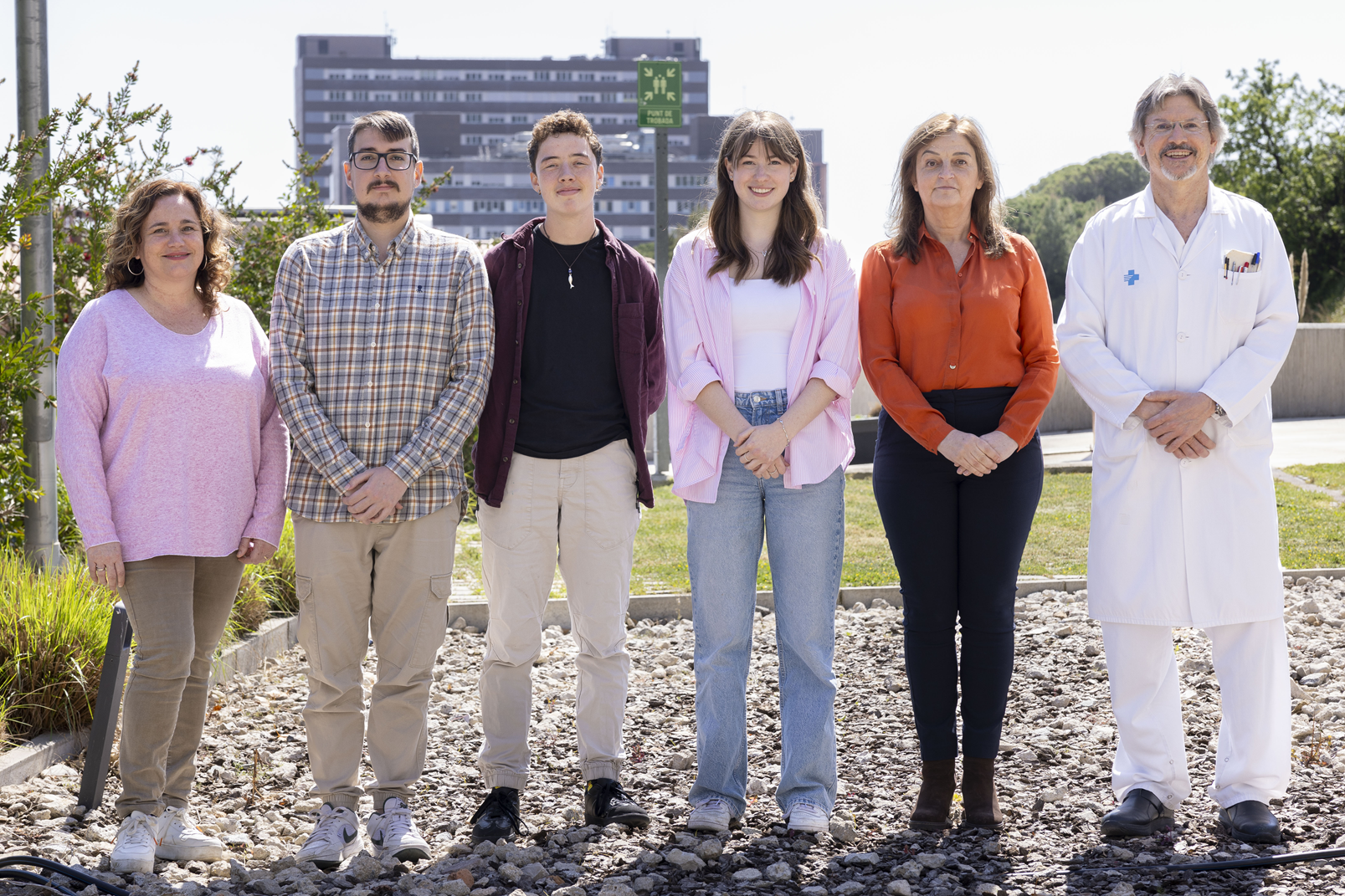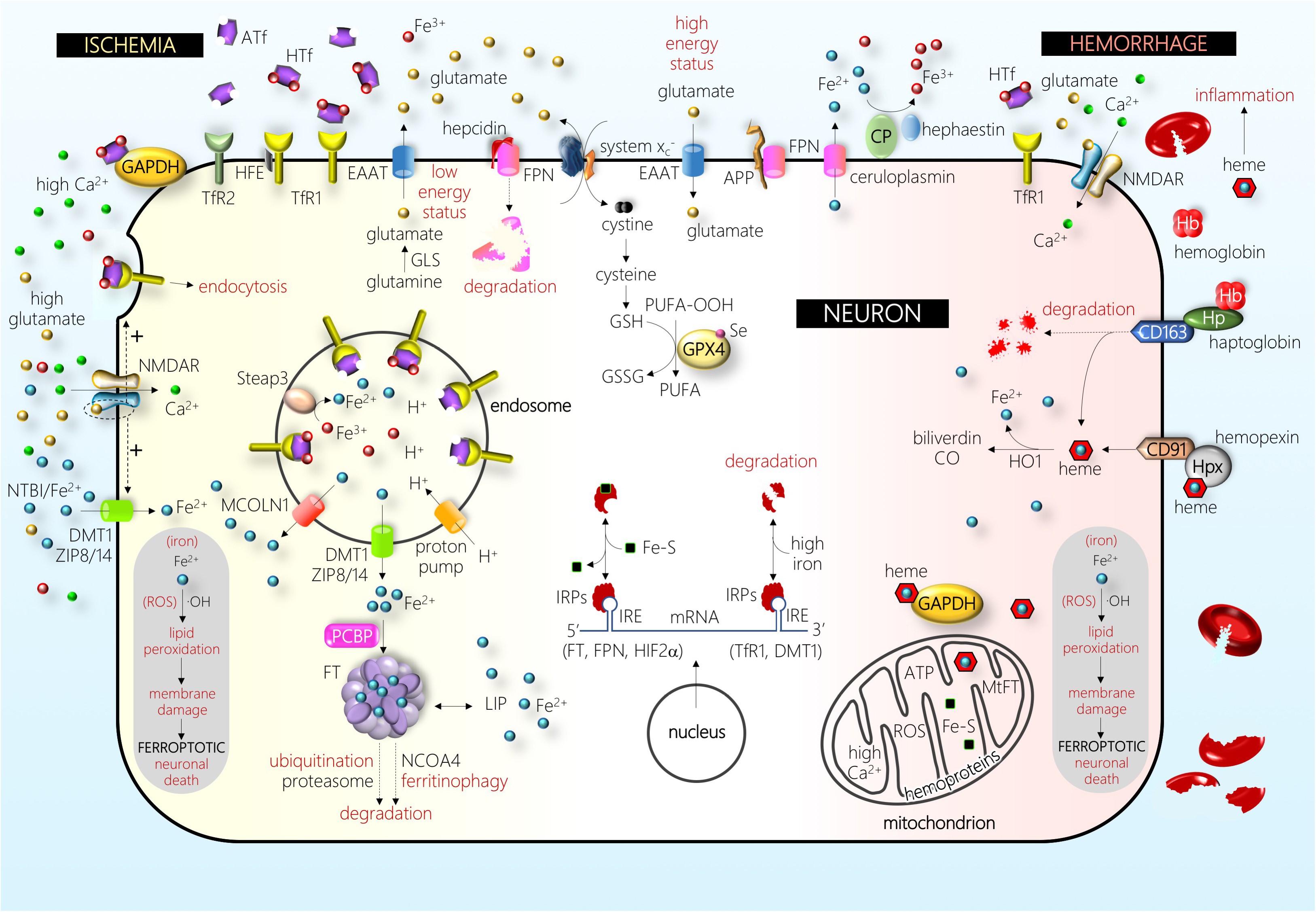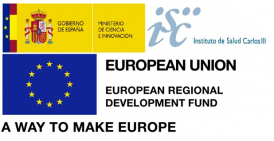Presentación
Quince millones de personas en todo el mundo presentan un ictus cada año y menos del 15% podrán volver a llevar una vida normal. El objetivo del grupo es obtener conocimientos científicos sobre la fisiopatología de los trastornos neurovasculares y el ictus; las alteraciones en las concentraciones de hierro en el cerebro en pacientes de ictus isquémico o hemorrágico; y la adquisición de imágenes multimodales de las características fisiopatológicas del ictus isquémico o hemorrágico. Estos conocimientos harán posible el desarrollo de innovaciones sanitarias en el tratamiento, la estratificación/clasificación/biomarcadores pronósticos, y el aprendizaje automático/profundo de la evaluación neuroconductual. Estas innovaciones se evalúan in vitro/in silico o in vivo en modelos preclínicos de ictus.
El Grupo de Investigación en Neurobiología Celular y Molecular (CMN) fomenta un ecosistema de colaboraciones multidisciplinarias para generar nuevas ideas dirigidas a la protección del cerebro para prevenir el ictus. Estos productos de una nueva generación de enfoques terapéuticos para los pacientes de ictus, pioneros en su clase y desarrollados por el grupo de CMN, están en desarrollo para reducir las tasas de mortalidad y proporcionar una mejor calidad de vida a los supervivientes.
Palabras clave: ictus, ictus isquémico, ictus hemorrágico, mecanismos de neurodegeneración, tratamientos, ferroptosis, transferrina, evaluación del comportamiento mediante aprendizaje automático/profundo, modelos animales de ictus.

Líder/es de grupo
- Teresa Gasull Dalmau, PhD

Teresa Gasull Dalmau, PhD
La Dra. Teresa Gasull posee un máster en Neurociencias y un doctorado en Biología. Fue nombrada para una posición Ramón y Cajal en el CSIC, y desde 2006 lidera el Grupo de Investigación en Neurobiología Celular y Molecular (CMN) en el Instituto de Investigación Germans Trias i Pujol (IGTP). Su investigación sobre el ictus tiene un fuerte enfoque traslacional para generar conocimiento científico sobre los trastornos neurovasculares, la desregulación del hierro cerebral en el ictus y la imagenología multimodal de los marcadores fisiopatológicos del ictus isquémico o hemorrágico. La investigación realizada en el Grupo de Investigación CMN utilizando modelos preclínicos in vivo de prueba de concepto de ictus en roedores y en grandes mamíferos (cerdos) se ha aplicado al desarrollo de innovaciones en salud en los campos de la terapia, biomarcadores de estratificación, clasificación y predicción, y evaluación neuroconductual con máquina/aprendizaje profundo.
La Dra. Gasull es miembro de la Red Temática Española de Investigación en Ictus RICORS STROKE, que cuenta con más de 100 científicos asociados, y del Grupo de Investigación en Neurociencias de la AGAUR en el IGTP. Ha sido premiada en los programas de innovación Bioemprendedor XXI y CaixaImpulse y ha recibido financiación como IP para 13 proyectos de investigación competitivos y acuerdos con empresas en el campo farmacéutico/biotecnológico. La Dra. Gasull ha publicado 50 artículos y es autora de dos patentes en el campo del ictus. Es editora temática para Cells, editora invitada para IJMS/ Curr. Issues Mol. Biol., y miembro del comité externo del Biobanco IGTP/HUGTP.
Contacto: tgasull(ELIMINAR)@igtp.cat
ORCID: 0000-0002-9321-1741 - Octavi Martí Sistac, PhD

Equipo
Investigadora sénior
Núria DeGregorio-Rocasolano, PhD(ELIMINAR)
Neuroradiólogo y neurocirujano intervencionista
Carlos Castaño Duque, MD, PhD(ELIMINAR)
Estudiantes de doctorado
Alexia García Serran(ELIMINAR)
Diego Sahuquillo Barros(ELIMINAR)
Líneas de investigación
Nuevas dianas relacionadas con el glutamato para la neuroprotección
El estudio de los mecanismos que conducen a la muerte neuronal excitotóxica a través de la señalización del receptor NMDA-glutamato para encontrar y probar dianas para la neuroprotección.
Ferroptosis en la muerte neuronal y compuestos neuroprotectores antiferroptóticos
Comprender la ferroptosis en la muerte neuronal en el ictus y otras enfermedades cerebrales: encontrar nuevas dianas de intervención y nuevos tratamientos.
Modelización experimental del ictus en roedores y cerdos
Modelos de daño por ictus isquémico y hemorrágico en ratas, ratones y en cerebros de cerdos girencefálicos, similares al cerebro humano, con un enfoque especial en el daño de la sustancia blanca y la conectividad de las áreas cerebrales.
Descubrimiento de nuevos biomarcadores para mejorar el tratamiento del ictus
Descubrimiento de nuevos biomarcadores bioquímicos y de imagen útiles para la identificación del tipo de ictus en el punto de atención, la estratificación de los pacientes con ictus, la selección de pacientes para la asignación de tratamientos y/o la predicción de los resultados.
Biología computacional: evaluación del comportamiento mediante aprendizaje automático/profundo en modelos de ictus in vivo
Se evalúa la gravedad del ictus en animales sometidos a un ictus experimental mediante el rendimiento neuroconductual, registrado en vídeo antes y después de la inducción del ictus. Se emplean DeepLabCut, MATLAB y regresión LASSO para desarrollar algoritmos que predicen con precisión la aparición y la gravedad del ictus. Este enfoque basado en el aprendizaje automático permite una evaluación eficiente, consistente y objetiva de los resultados del ictus en estudios preclínicos.

Proyectos activos
Innovative BIomarkers to DIagnose Ischemic stroke: the bet on miRNAs in extracellular vesicles in humanized swine models (IBIDI-Stroke)
PI: Teresa Gasull Dalmau
Funding agency: Instituto de Salud Carlos III (ISCIII)
Agency code: PI21/0192
Duration: 01/01/2022 - 01/01/2026
More information

Enhancing post-stroke recovery with nutraceutic hydroxytyrosol in "humanized" stroke models in swine: a multiomics, neuroimaging and functional study
PI: Teresa Gasull
Funding agency: PROYECTOS DE I+D+I EN SALUD ISCIII
Agency code: PI24/00963
Duration: 01/01/2025 - 31/12/2027
RICORS
PI: Mònica Millán
Funding agency: ISCIII
Agency code: RD24/0009/0015
Duration: 01/01/2025 - 31/12/2027
GRUP DE RECERCA NEUROVASCULAR GERMANS TRIAS I PUJOL (GRNVGT)
Several CMN Research Group members are part of the GRNVGT Group
Funding agency: Agència de Gestió d'Ajuts Universitaris i de Recerca (AGAUR), Generalitat de Catalunya
Agency code: 021 SGR 00925
Duration: 01/01/2022 - 30/06/2025
PhysioLab 3.0: innovative protocols and technological integration in Physiology practicals in a Faculty of Biosciences
PI: Octavi Martí-Sistac
Funding agency: Universitat Autònoma de Barcelona
Duration: 09/2023 - 07/2025
Últim pas cap a la clínica: estudi preclínic aleatoritzat d'apotransferrina intravenosa en el tractament de l'ictus isquèmic agut
PI: Teresa Gasull
Funding agency: Departament de Sanitat i Seguretat Social Generalitatde Catalunya
Agency code: SLT036/24/000048
Duration: 01/01/2025 - 31/12/2026
Proyectos anteriores
Apotransferrin to treat acute stroke as a novel neuroprotector strategy /Apotransferrina com a nou tractament per a l'Ictus agut
PI: Teresa Gasull Dalmau
Funding agency: Agència de Gestió d'Ajuts Universitaris i de Recerca (AGAUR), Generalitat de Catalunya
Agency code: 2019PROD00120
Duration: 22/07/2020 - 22/01/2022
More information
Development of an humanized model of ischemic stroke through endovascular access in the pig for the dynamic study of infarct and cerebral reperfusion
PI: Teresa Gasull Dalmau
Funding agency: Instituto de Salud Carlos III (ISCIII)
Agency code: PI18/01813
Duration: 01/01/2019 – 31/06/2023
Kintsugi Therapeutics/IGTP co-development project. Efecto de los inhibidores de caspasa-2 desarrollados por Kintsugi en neuroprotección en isquemia
PI and scientific coordinators
Funding agency: Kintsugi Therapeutics
Duration: 19/07/2021 - 19/07/2022
Preclinical Proof of Concept of a new compound in a non-BPL study in an orthotopic glioblastoma model in mice
PI and sicntific advisor: Teresa Gasull Dalmau
Funding agency: Laminar Pharma
Duration: 01/04/2024 - 31/12/2024
Publicaciones científicas
Publicaciones destacadas
Castaño C, Melià-Sorolla M, García-Serran A, DeGregorio-Rocasolano N, García-Sort MR, Hernandez-Pérez M, Valls-Carbó A, Pino O, Grífols J, Iruela-Sánchez A, Palomar-García A, Puig J, Martí-Sistac O, Dávalos A, Gasull T. Establishment of a reproducible and minimally invasive ischemic stroke model in swine. JCI Insight. 2023 Apr 24;8(8):e163398. DOI: 10.1172/jci.insight.163398
Millán M, DeGregorio-Rocasolano N, Pérez de la Ossa N, Reverté S, Costa J, Giner P, Silva Y, Sobrino T, Rodríguez-Yáñez M, Nombela F, Campos F, Serena J, Vivancos J, Martí-Sistac O, Cortés J, Dávalos A, Gasull T. Targeting Pro-Oxidant Iron with Deferoxamine as a Treatment for Ischemic Stroke: Safety and Optimal Dose Selection in a Randomized Clinical Trial. Antioxidants (Basel). 2021 Aug 10;10(8):1270. DOI: 10.3390/antiox10081270
DeGregorio-Rocasolano N, Guirao V, Ponce J, Melià-Sorolla M, Aliena-Valero A, García-Serran A, Salom JB, Dávalos A, Martí-Sistac O, Gasull T. Comparative Proteomics Unveils LRRFIP1 as a New Player in the DAPK1 Interactome of Neurons Exposed to Oxygen and Glucose Deprivation. Antioxidants (Basel). 2020 Nov 30;9(12):1202. DOI: 10.3390/antiox9121202
DeGregorio-Rocasolano N, Martí-Sistac O, Ponce J, Castelló-Ruiz M, Millán M, Guirao V, García-Yébenes I, Salom JB, Ramos-Cabrer P, Alborch E, Lizasoain I, Castillo J, Dávalos A, Gasull T. Iron-loaded transferrin (Tf) is detrimental whereas iron-free Tf confers protection against brain ischemia by modifying blood Tf saturation and subsequent neuronal damage. Redox Biol. 2018 May;15:143-158. DOI: 10.1016/j.redox.2017.11.026
Bustamante A, López-Cancio E, Pich S, Penalba A, Giralt D, García-Berrocoso T, Ferrer-Costa C, Gasull T, Hernández-Pérez M, Millan M, Rubiera M, Cardona P, Cano L, Quesada H, Terceño M, Silva Y, Castellanos M, Garces M, Reverté S, Ustrell X, Marés R, Baiges JJ, Serena J, Rubio F, Salas E, Dávalos A, Montaner J. Blood Biomarkers for the Early Diagnosis of Stroke: The Stroke-Chip Study. Stroke. 2017 Sep;48(9):2419-2425. DOI: 10.1161/strokeaha.117.017076
Información adicional
Redes colaborativas
RICORS-ICTUS Redes de Investigación Cooperativa ENFERMEDADES VASCULARES
Objetivo del grupo: validación de nuevos tratamientos para el ictus.
Varios miembros del Grupo de Investigación CMN forman parte de la Red RICORS-ICTUS.
Agencia financiadora: Instituto de Salud Carlos III (ISCIII)
Código de la agencia: RD21/0006/0024
Duración: 01/01/2022 - 31/12/2024
Tesis doctorales
Title: New humanized model of ischemic stroke through endovascular approach in the pig: study of the pathophysiological pathways in gyrencephalic brain and of new biochemical and multimodal imaging biomarkers with potential transferability
Author: Marc Melià Sorolla
Supervisors: Dr Teresa Gasull Dalmau, Dr Octavi Martí-Sistac
University: Universitat Autònoma de Barcelona
Date of defence: Septembrer 2024
Title: Role of iron and ferroptosis in a haemorrhagic stroke model: identification of specific biomarkers, therapeutic targets and potential neuroprotective candidates
Author: Alexia García Serran
Supervisors: Dr Teresa Gasull Dalmau, Dr Octavi Martí-Sistac
University: Universitat Autònoma de Barcelona
Date of defence: October 2025
Noticias
Los estudiantes de Badalona descubren la investigación del Campus Can Ruti durante la Semana de la Ciencia
Cerca de doscientos estudiantes de bachillerato y ciclos formativos han participado en una nueva edición de la actividad "Open House: conoce de cerca el Campus Can Ruti", consolidando un año más la apuesta del campus por la divulgación científica y el fomento de vocaciones entre los jóvenes.
El IIS IGTP obtiene más de 6,5 millones de euros en el marco de la Acción Estratégica en Salud 2024
El IIS IGTP ha obtenido un financiamiento total de 6.518.867 euros para diversos proyectos de investigación y contratos de investigadores dentro de las convocatorias de la Acción Estratégica en Salud 2024.
Contacto
(+34) 93 033 05 31
Más enlaces
Sigue @TGasull en X · Sigue @OSistac en X · Sigue @NeuroGermansTrias en X
